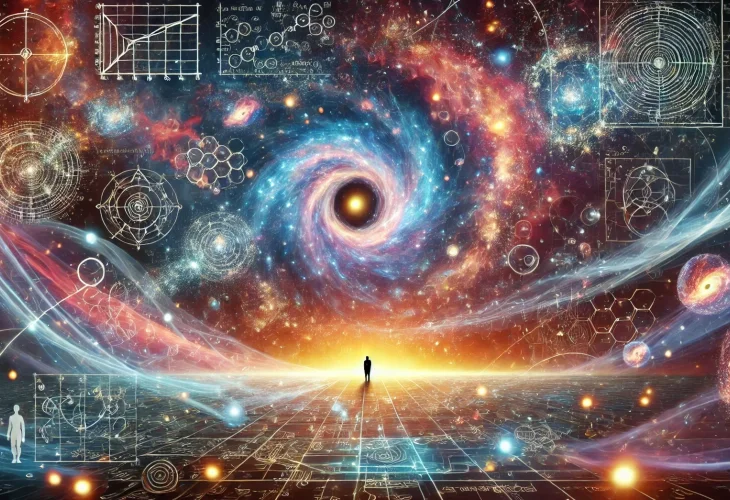In Search of God
Astrophysicist Brian Keating Exposes the Faith Behind Atheism and the Myth of the Multiverse
A world-renowned cosmologist reveals how modern science’s rejection of God often relies on blind belief — while true evidence still points to intelligent design

“You may be surprised to hear that I, a professor of astrophysics, don’t believe in the law of gravity. I also don’t believe in black holes. I don’t even believe that the sun rises in the east.”
This was how Professor Brian Keating, a renowned physicist at the University of California, opened one of his most striking lectures. His audience was stunned — until he added: “I don’t believe in these things because I don’t have to. I have evidence for them.”
Keating specializes in cosmic background radiation — the faint afterglow of the Big Bang that reveals the origins of the universe. A prolific researcher, patent holder, and recipient of numerous awards, Keating is also the son of James Burton Axe, one of the world’s greatest mathematicians. Despite his scientific pedigree, Keating’s personal journey led him to question the very foundations of modern scientific thinking.
From Atheism to Honest Doubt
After his parents divorced, Keating grew up in the home of a Jewish stepfather but identified as an atheist for much of his life. As his career progressed, he began to notice something unsettling in the scientific establishment — a subtle pressure to conform, to reinforce rather than challenge prevailing assumptions.
In his acclaimed book Losing the Nobel Prize, Keating argues that the Nobel system discourages innovation and instead rewards consensus. “Scientists,” he writes, “are trained to protect existing paradigms, not to question them.”
Faith, Evidence, and the Limits of Science
In his lecture, Keating contrasted faith and evidence: “For centuries, scientists have used evidence to test their ideas about the physical world. That’s the scientific method — humanity’s most powerful tool.
But when it comes to discussions about the Creator, people suddenly use the word faith. Even though the universe looks perfectly designed for life, even believers hesitate to call that proof. They treat it as belief, because they lack clear data.”
So, Keating asked, how do secular scientists explain existence without a Creator?
The Multiverse: The New “Religion” of Modern Science
Many cosmologists, Keating explained, have turned to a theory called the multiverse — the idea that our universe is just one among an infinite number of others.
“In this view,” Keating said, “most universes are either too cold or too hot for life. But with infinite possibilities, a few are bound to get it right — and ours just happens to be one of them.”
For many scientists, this theory conveniently removes the need for a divine Creator. Yet, as Keating noted, no actual evidence supports it. Even its advocates admit that it’s entirely speculative.
“Despite stereotypes,” Keating added, “we scientists are human. We want to believe things that fit our worldview. That’s called confirmation bias. Combine that with scientific authority, and you get a dangerous mix — especially when it comes to ideas like the multiverse.”
When Science Becomes Belief
Keating cited Nobel laureate Steven Weinberg, who claimed that infinite universes are “good news” because they eliminate the need for God. But, as physicist Paul Davies observed: “To talk about an infinity of unseen universes to explain what we see is exactly like talking about an unseen Creator. The multiverse may sound scientific, but it still demands the same leap of faith.”
Keating agreed. “Because the multiverse cannot be tested or disproven, it becomes unfalsifiable — immune to evidence. It’s what some call a ‘theory of everything,’ but it’s really a theory of anything.”
He also quoted G.K. Chesterton: “When people stop believing in God, they don’t believe in nothing — they believe in anything.”
“In the case of the multiverse,” Keating said, “Chesterton’s words are literally true. Scientists who reject the Creator because of ‘insufficient evidence’ have replaced Him with a theory that abandons evidence altogether.”
The Courage to Admit Belief
“In the end,” Keating concluded, “when scientists embrace far-fetched theories simply to avoid acknowledging a Creator, they should at least be honest about their motives.
“They believe, just like everyone else. They just can’t bring themselves to believe in God. All it takes is honesty to admit it.”

